
Memoir
/ˈmemˌwär/ noun. a record of events written by a person having intimate knowledge of them and based on personal observation. Usually memoirs. an account of one's personal life and experiences; autobiography. the published record of the proceedings of a group or organization, as of a learned society.
Double dueces. Next week's prompt made me revisit some memories I think I had mentally blocked. However, instead of being painful these memories made me even more grateful for my life today. Over the past twenty-two weeks Memoir Monday has proven its value to me time and time again but this week's prompt hit differently, more deeply. This one revealed truths that I don't think I could have learned any other way. Despite the struggles I'm going through in the present moment, I see my life in a different light now. It's not good to dwell too long in the past but it can it can teach you things if you revisit it from time-to-time. I hope you're reaping the same rewards as you're taking this journey with me and working on your own prompts.
Memoir Monday has grown so much that I won’t be able to comment on everyone’s posts anymore (and get my own work done) but I’ll still be supporting your posts with reblogs, votes, and shares on my other social media accounts (X, Facebook, etc.).
For all of those who’ve regularly participated in Memoir Monday - keep going, you’re making great progress in chronicling your very own life story for future generations to enjoy.
For those who missed the inaugural post explaining what the Memoir Monday initiative is all about you can find it here.
Now for next week’s Memoir Monday prompt:
How did you manage periods in your life when you had the least money?
My answer:
I was raised by parents who, wisely, didn’t use credit unless it was absolutely necessary for emergencies. This financial philosophy was passed down to me so I’ve tried hard to be responsible and live within my means for my entire life.
There have been a few time periods in my life where I struggled financially. The first was when I first moved from Ohio to Minnesota in 1995. I was twenty-four years old and relatively naive about how hard it would be to leave everything and everyone I knew and start over. I had been working for The Limited, Inc in Columbus since right after high school. It was a stable job with good benefit. This job allowed me to put myself through college but the opportunities for advancement just weren’t great and I didn’t make much money.
In the autumn of 1994 I met the woman who would end up being my first wife online. Our long distance relationship blossomed to the point I decided to move to Minnesota in July of 1995. I packed up my ‘91 Honda Civic with all of my belongings and had been sending resumes to companies in Minnesota to line up interviews but had no definite job prospects.
At the time I had six-thousand dollars to my name and it felt like a small fortune. My middle-aged self winces when I think about how badly this move could have gone. Youth, combined with wishful thinking, and a healthy smattering of naïveté can sometimes allow you to take huge leaps of faith. Thankfully, after lots of interviews I found a job in a couple of weeks at a very reputable insurance company in St. Paul called Minnesota Mutual (they later became Minnesota Life, then Securian) working in the mailroom.
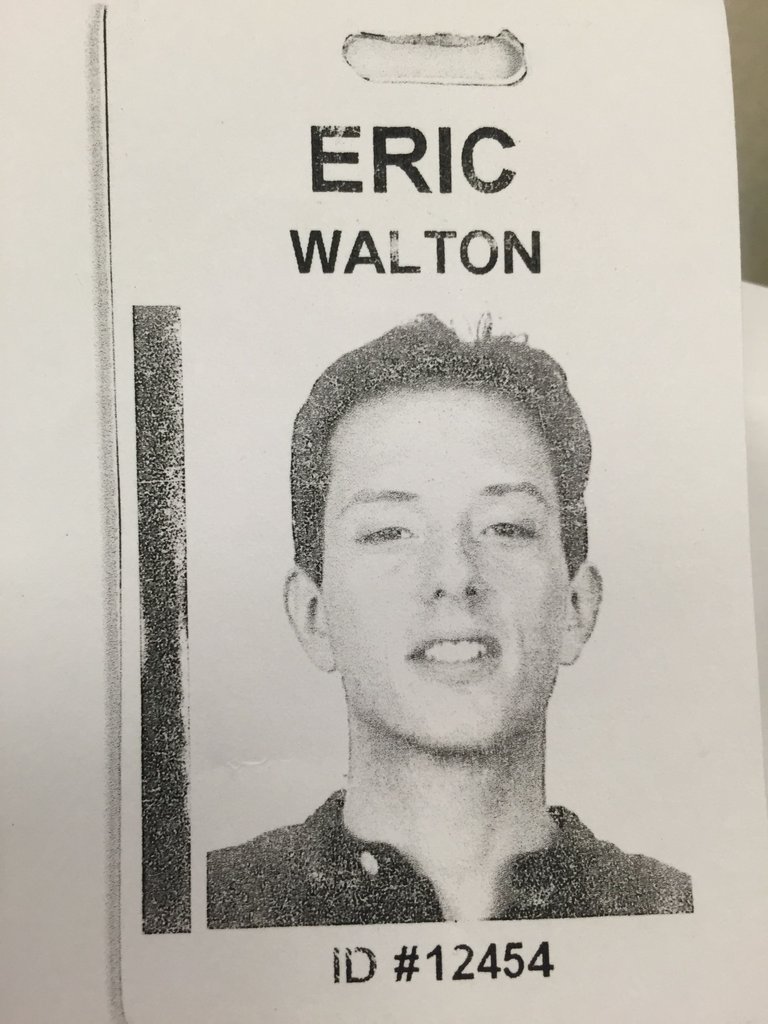
I was thrilled to find a job but wasn’t making nearly as much as I did back in Ohio at The Limited. To make matters worse the cost of living in St. Paul was considerably higher than it was in Columbus. This is one factor I didn’t take into consideration when I moved. I burned through my savings in just a few months and was living paycheck-to-paycheck with only the safety net of a credit card.
Money was tight for the first three years but having grown up without much money I knew how to live frugally. I adjusted my lifestyle and just didn’t spend money I didn’t have. It was as simple as that. My girlfriend and I had to keep track of each dollar we spent. Entertainment consisted of hanging out with friends at home, walks, rides in the car, and the occasional matinee at the local theater. The stress of it did affect me more than I thought at the time because I went from 175 lbs to 145 lbs within the first year. I actually look gaunt in pictures from that time.
There were a couple of times during those really lean years my parents inadvertently saved me. As I recall, they did this twice. I was scrambling to try to come up with enough money to pay the bills and out of the blue they sent a hundred dollar bill enclosed in a short letter. I never asked them for money but they must have somehow known I needed it. I sure was grateful for it. I ended up getting several decent promotions at Minnesota Mutual, our financial situation gradually improved, and we started to be able to save money and invest.
The second round of lean years were during the Housing Crisis. My current wife and I bought a house at almost the height of the real estate boom in 2007 just before the market crash. Property prices were near their peak and mortgage lenders were taking huge risks, loaning people way more money than they could afford.
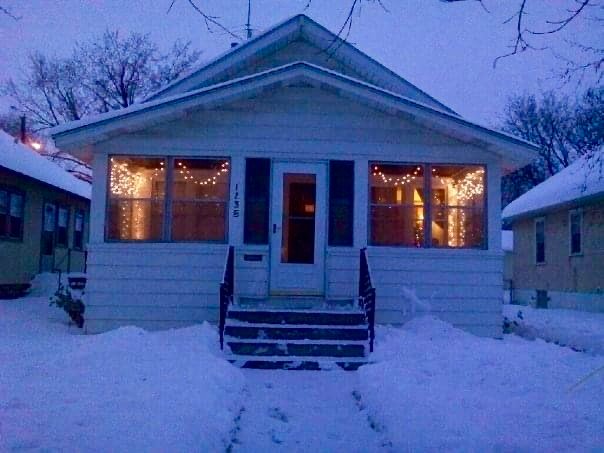
I knew that our budget was going to be very tight once we were in the house and had reservations about it. The loan officer was both persuasive and creative. He said that we could pull it off with an 80/20 mortgage (which is now illegal). The first mortgage financed 80% of the home price, and the second mortgage covered 20%. The problem was the smaller loan had a variable interest rate which inflated the monthly payment tremendously.
I was still relatively young, and hadn't yet reached the "glass ceiling" at Minnesota Mutual. I optimistically assumed my salary would catch up. Our plan was to refinance both loans into one traditional mortgage within a year but the Housing Crisis hit and banks were forced to tighten up lending requirements.
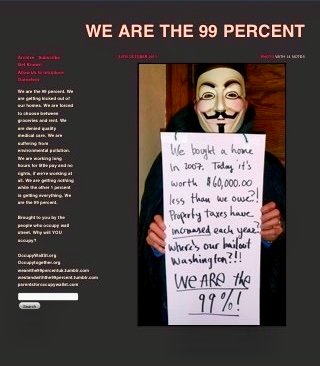
Once again our youthful optimism and bad timing put us in a precarious position. The housing market collapsed. In a matter of weeks our house was worth $60k less than what we paid for it. Under the new lending rules we no longer qualified to refinance. Our options were to either continue to be poor and pay the loans down or declare bankruptcy and mail the mortgage company back the house keys. Many people in our neighborhood chose the second option. During the worst of the crisis (2008-2010) about 25% of the houses on our street had been foreclosed and were vacant.
To add insult to injury the City of St. Paul increased property taxes exponentially over the next two years. Normally, property taxes are tied to the market value of the house but St. Paul decided to meet budget shortfalls by charging homeowners multiple, “special assessments” that had to be paid within 90 days. The largest of which was almost $7,000. This was a massive blow to families who were already struggling. Although we did nothing wrong we felt like we were being attacked by all sides and everyone was getting bailed out but us homeowners.
As luck would have it, in the fall of 2008 our adult son needed a place to stay. He moved in with us and the rent he paid us allowed us to skate by during those really lean years. We felt abandoned and bamboozled by the city/federal governments and lending institutions. Something great was born out of this tragedy though. The Housing and subsequent Banking Crisis was the catalyst for the creation of Bitcoin, which little did I know at the time, would dramatically change my life for the better less than a decade later.
Our first beagle, Bud, passed around this time as well. After a few months we decided to get another beagle. We drove a few hours west to Litchfield, MN to pick up Amstel (Yes, my wife names our dogs after beers).
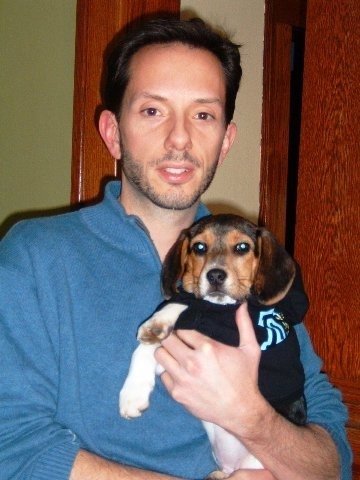
Amstel really helped us to focus on something fun and positive during the challenging years. Thanks to him, our son, extended family, and our friends we still managed to make some great memories during those years. We were grateful for what we had instead of thinking about all the things we didn't have.

During both of these bouts of financial struggle I wasn’t always unhappy or frazzled. Somehow, our basic needs were always met. We still made great memories, some of our best actually. Having a tight budget wasn’t always easy but it did force us to be creative, focus on what really mattered, and use our wits. We rode out the storm on and we made due with what we had until our condition improved.
I discovered that when you’re in the midst of a crisis you’re way too busy concentrating your energy on surviving to notice what you’re missing out on. The stress of continually trying to make financial ends meet, even if we’re not conscious of it, does take a tremendous toll on you over time though. I lost a considerable amount of weight during the first crisis and the second crisis visibly aged me.
As the old saying goes, “What doesn’t kill you makes you stronger.” These two periods of financial struggle most certainly did do that. They also forced me to learn some valuable lessons that I won’t soon forget -- you can be happy with less than you think, struggles never last forever, and never be lulled into the false assumption that the financial institutions and government are on your side.
Rules of Engagement
- Please reblog this first post and share on other social platforms so we cast the widest net possible for this initiative;
- Pictures paint a thousand words. Include pictures in your posts if you have them;
- Answer each Memoir Monday prompt question in your own post. If possible, the prompt question will be published in the week prior so you'll have the entire week to answer and publish your own post;
- Have fun with it, don't worry about getting behind, or jumping into the project at any point after we've begun; and
- Lastly, be sure to include the tag #memoirmonday.
It's that simple.
At the end of the next twelve months we'll have created something immensely valuable together. It's so important to know our "whys" in life and there's no better way to do that than this.
Someday all that will be left of our existence are memories of us, our deeds, and words. It's up to you to leave as rich of a heritage as possible for future generations to learn from. So, go ahead, tell your stories. I can't wait to read them.
Be well and make the most of this day. I want to sincerely thank all of the participants thus far. I've really enjoyed reading your posts!
Growing weary of the ads and divisiveness on mainstream social media? If so, why not try Hive? Click on this link to sign-up and join our growing global community.
Let’s Keep In Touch
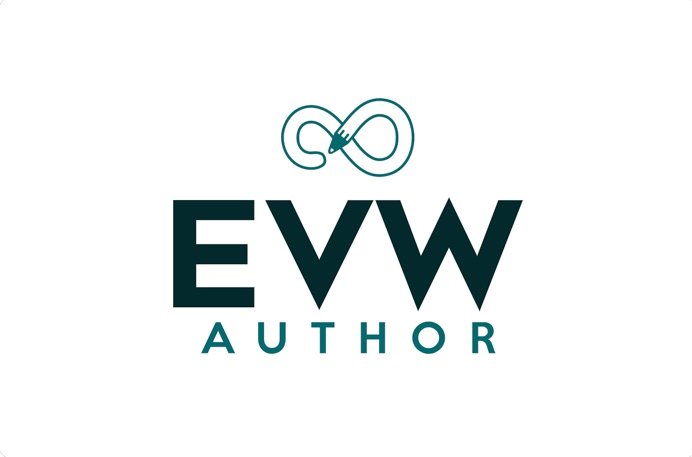
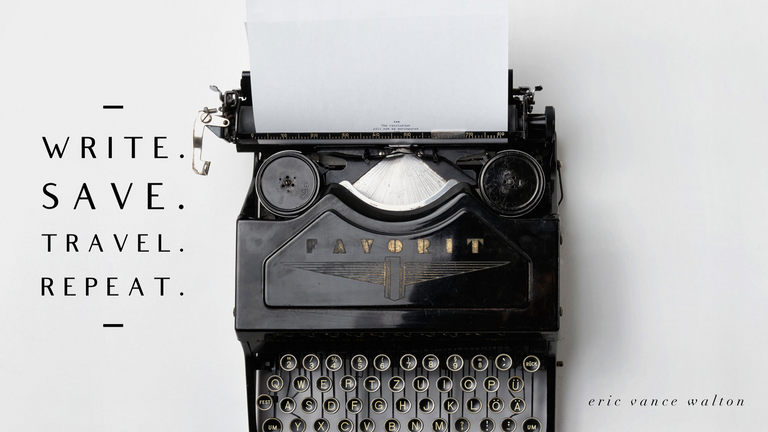
The whole American foreclosure thing must have been so stressful. I can't believe they raised property taxes as well. Just inhuman.
Sounds like you are with the right person, weathering the storm together.
It resonated when you said about how youth doesn't worry as much about what's going to happen and how you take risks you probably wouldn't now. I'm so much more stressed about money than I was when I was broke living from paycheck to paycheck! I remember my folks dropping me off an envelope or two when Dad got a bonus. I never expected it and was incredibly grateful for those small gestures.
It a was very strange time to live through. Even more weird was how empty the neighborhood was. I'd walk our dog a few blocks from our house and sometimes every 3rd or 4th house would be foreclosed and vacant. This marked the beginning of the decline of American metropolitan centers and that decline has never stopped.
We made a good team, it helped that we were on the same page.
I definitely think about my future more now that I did back then and I'm much more conservative. I think that's normal to a certain extent. I see how hard it is for seniors and want to do my best to make sure we're not struggling. That's so awesome that your parents did that! Parents have a way of knowing what their children are going through even if we don't tell them. I remember how relieved I was when I got those couple of gifts from my parents. It was always when I needed it most.
My folks did alright. Solid story of work hard, buy right, an investment property or two and then they retired with a decent sum. Boomers in Australa are much resented for it as the new gen has very little opportunity to even get on the property ladder. A lot of people are asking for early inheritance - if that's possible.
Dad now keeps saying 'oh, don't worry about it, money doesn't matter' as I longingly look at houses about 200k AUD too much for us (we don't really want another mortage) without any understanding of how difficult it is or how relatively little we have to them at that age, and underestimate how much we really, really, really don't want to slave for it.
But I should put all this in a post, right?
My parents were pretty meticulous with their budget as well and I think a lot of that trickled down to me as I was growing up. Unfortunately, when you get a taste of the freedom money affords you and then you get laid off or your hours get cut it's hard to adjust on the fly. I did so many things wrong during that time, but I also managed to squeak by. I never really dug out of that, I just kept pushing it off. Then, when my wife and I got married, we finally had to address it head on. It was a lot of work, but we came through on the other side better for it.
Very true! Life can change much more quickly than we can imagine. It’s all lessons though!
I believe when things come too easy, people take it for granted. Those rough patches teach us to truly appreciate what we have.
Tough one this week!
Yes, I agree, especially when you’re young. Early struggles can set the tone for the rest of your life if you learn from them.
Can I participate in an old memoir Monday?
Absolutely! You can answer any prompt at any time.
Knowledge gleaned from parents going through rough patches in life stood you in good stead on how to navigate your own.
Some crazy things we put ourselves through, when using common sense, knowing where to draw the line most come out for better!
@tipu curate
Upvoted 👌 (Mana: 65/75) Liquid rewards.
My parents taught us well. Still, I was lured into making risky decisions that could have wrecked me. As they say, until the lesson is learned it's repeated. Thankfully it only took me twice. : )
Many of us had to tighten our belts to avoid destruction, with small boys in the home when interest rates rocketed sky-high 23.99% June 1998. House our only big debt, loans average +3% on government amount, we battled through avoiding any other debts.
Parents were both frugal for which I look back and thank them being taught to do with what you have or make it stretch further when you able.
Whoa, that's a huge jump! I'm glad you had lessons from your parents to help you get through it. So many people here in the States threw in the towel and declared bankruptcy. It takes about seven years for your credit to recover from that (at least it did back then) and it would have derailed our entire life. We were lucky that we were able to ride out the storm.
No one to turn to, we knuckled down and made sure to keep your head above water with food on the table. This was a point when you learn quickly, avoid debt or overdraft, many lost homes and more.
It was the same way here in the US in the 2008-10 timeframe.
Quick to sell placing you in debt, when things go wrong they did their due diligence....
I made concession on my lifestyle such as not eating outside and not going out of where I used to live.
It's always smart to live within your means!
That's a hell of a story there about your past. I'm the first kid and when I was young my parents were dirt poor. That would change as dad found success with his job, but being forced to live a very frugal childhood shaped how I view money to this day. At various points in my life I have had extra money, and at various points I have had none. Both were kind of ok. Now I have enough to survive, but I rarely spend anything on myself. I think that lean childhood and those lean episodes in my adult years taught me that I don't need a lot.
It's funny, when I was a kid and I would see stories about someone who became rich later in life but continued to live very frugally and so no one, not even his extended family, knew that he had money. I'd shake my head and wonder how someone who become rich and not enjoy it. But now I know, and now I would be the same way, just continuing to live like I always have.
Thanks David. It was the exact same for my family. My dad worked hard in a machine shop and always had multiple side gigs to make extra money. He was a true survivor. He passed a lot of those skills to my brother and I by his example. I don't mind spending money on things if they end up being a good value but possessions don't impress me. Freedom and experiences will always be worth more to me than things. My favorite thing in the world was to buy things for my dad before he passed and my mom now. They sacrificed so much raising my brother and I. Being able to spoil them is probably the biggest joy and blessing I'll have in my life.
Here at home I was also taught that I should only “take shelter as far as the blanket will allow”. What you say is difficult and I imagine you not only writing this, but also living this “odyssey” and I understand you. Maybe that's why you talk so happily about the trips you have made, your car, your bicycle, the things you have now, because only those who have been empty-handed know the weight of things.
It will be good, on my part, to also talk about those moments when I felt the coldness of the wall on my back and a hole under my feet, just for not having money. I'll see you around.
Ah, I hope you are well. I send you a big hug, as always.
I've never heard that saying before but it makes perfect sense. That's exactly it. When you grow up without many material things you appreciate everything all the more. My dad always taught us to take very good care of our things. He also taught us to iron our clothes and shine our shoes. He always said when he was a child even if there were holes in his shoes they would be shined. He really took pride in his appearance and always had a swagger about him. Looking forward to your entry next week! Thank you Nancy! Have a great evening.
Those special assessments sounded absolutely brutal. What an unfair stunt to pull on people who are struggling already
This marked the precise moment I ceased to trust elected officials. It nearly bankrupted us. I contacted our City Council to protest and they said it was my right to come down to the next meeting and voice my opposition but then said it wouldn't do any good because they had already passed the assessments prior to when the meeting would be held. The person I spoke with even had the nerve to try to spin it in a positive light. He said the city decided to pass the assessments then because interest rates were historically low. Ruthless f*ckers.
Yeah, that is horrible. Mofos.
Ita horrible when you are in a bad situation and it seems that fate itself decides to pile on with further complications!
That was definitely a "when it rains, it pours" type scenario. Lol. We have one of the most corrupt city governments in the entire nation, it's elevated to an art form.
Interesting question, We will learn a lot after reading people's entries.
#hive #posh
Aww, Amstel ❤️
Honestly, I had no idea it was a beer brand. If I saw a bottle now, I'd probably think "oh look, like Eric's dog" xD
I love the sense of "we pulled through together" in your stories here. I think it's wonderful how you turned out, after all that, 'cause there seem to be two meanings to "I survived that", and one implies a sense of meanness, vengefulness at the world for having survived. You don't seem like that, fortunately. :)
He was such a good dog. Facebook Memories are a doubled-edged sword. I see pictures of him come up almost every day. Amstel Light is a Dutch brand and they export it here. It's not my favorite TBH. I'm not a huge fan of lagers. If we adopt a female dog next her name will definitely be Stella (Artois). : )
Thanks my friend. I'm thankful we were able to work through it all virtually unscathed in the end. Although I do have a healthy distrust of financial institutions and elected officials that I'll never be able to shake. These prompts uncover so many things inside me that have been buried for years. From writing this I learned a couple valuable things -- 1) How much Amstel helped us get through those hard days; 2) The Housing Crisis planted the seed for my willingness to be an early adopter of crypto.
Interesting topic I will also make my own post after a couple of days and express my thoughts within the post.
Cool!
Sometimes it can really be quite difficult to manage the money remaining with you most especially when you have a whole lot of expenses
For sure, it's expensive to live...especially today!
Congratulations @ericvancewalton! You have completed the following achievement on the Hive blockchain And have been rewarded with New badge(s)
Your next target is to reach 18000 comments.
You can view your badges on your board and compare yourself to others in the Ranking
If you no longer want to receive notifications, reply to this comment with the word
STOPCheck out our last posts:
How nice it is to get to know each other from publication to publication. Problems are everywhere on the planet, the important thing is what you do so that they don't destroy you.
Uncertainty is another faithful companion, I want to continue being optimistic.
I leave you my publication and thank you for this opportunity to tell, it is a way to vent.
https://peakd.com/hive-106316/@charjaim/memoir-monday-22-embracing-optimism
This question keeps ringing in my mind how can you manage money in this current economy situation.
This is the link to my own answer
https://ecency.com/hive-109288/@folublessed/how-did-you-manage-periods
https://ecency.com/hive-109288/@jemima2001/being-a-mother-has-been
I read you and it's like entering the time tunnel. I also lived in the time when we used credit cards and bought our homes with mortgage loans. Now we have a generation that has never known any of that. In Venezuela many years ago we stopped using credit, devaluation, hyperinflation and legal insecurity made it disappear.
Thank you for sharing, dear @ericvancewalton . A big hug from Maracay.